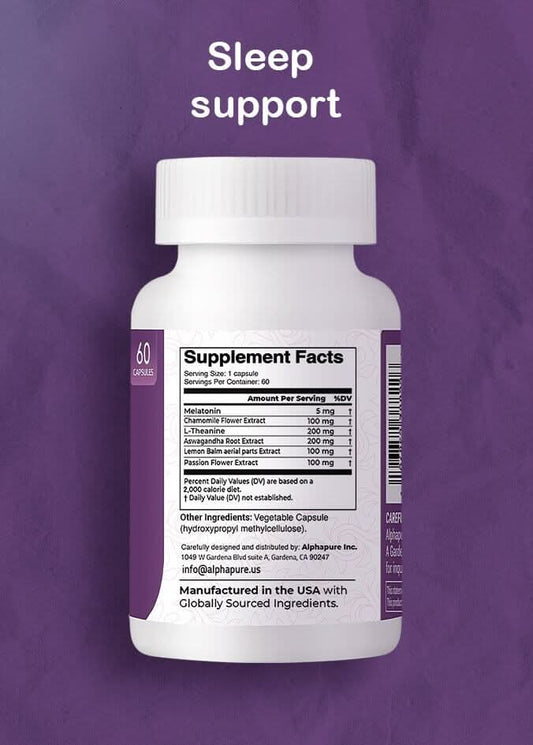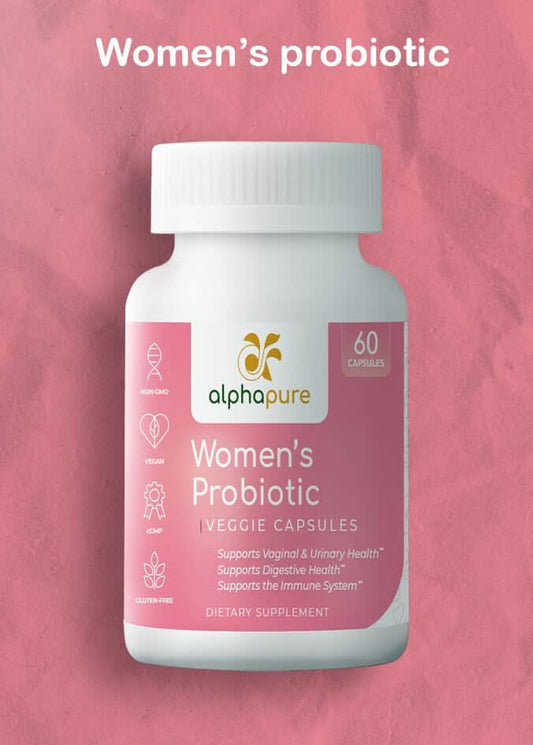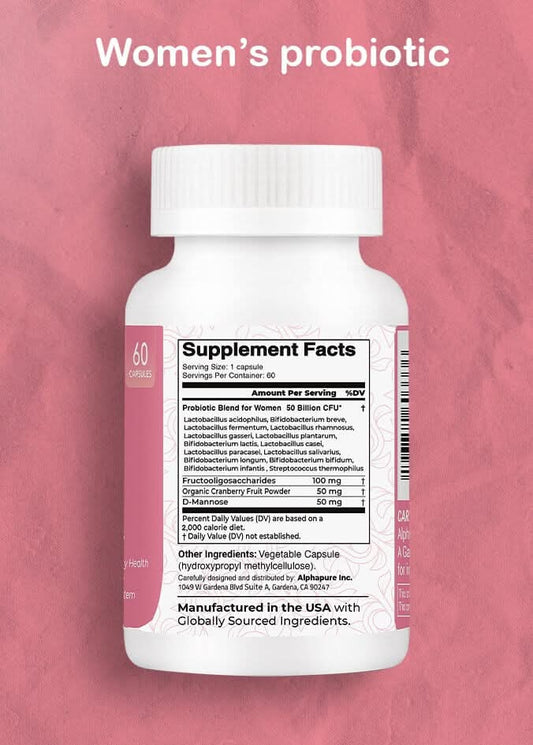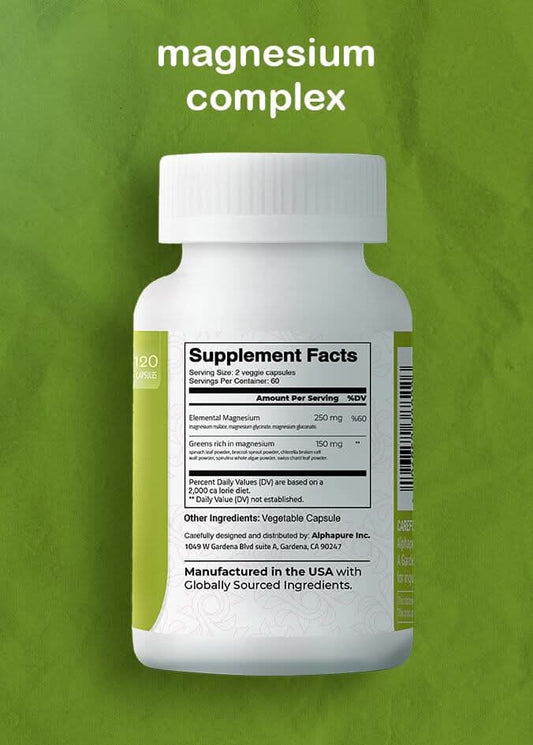
Boost Your Digestive Health and Wellness with Probiotic Capsules
Probiotics are live microorganisms, including bacteria and yeast, that are commonly found in foods, supplements, and even skincare products. While there's growing interest in their potential health benefits, scientists are still figuring out the best ways to use probiotics effectively. These microorganisms might offer benefits for some individuals, but they aren’t suitable for everyone. For instance, certain strains may improve digestion, boost testosterone in men, or support vaginal health in women.
It’s important to note that probiotic supplements are not regulated by the FDA as strictly as prescription medications. This means that some products may contain ingredients that don’t match what’s listed on the label. To ensure you're choosing a high-quality probiotic, look for products that have been third-party tested and always consult with a healthcare provider, registered dietitian, or pharmacist before starting a new supplement.
The Benefits of Probiotics
Probiotics are available in a wide range of products and formulations, and although a lot of research has been done, definitive conclusions are still lacking. The human body is home to numerous microorganisms, known as the microbiome, which reside both on the surface of and inside the body. Probiotic supplements are designed to improve health by altering the balance of the microbiome. While probiotics can help address various health conditions, it’s often unclear which strains are most effective for specific issues.
When Should You Take Probiotics?
While probiotics can benefit many people, guidance on the best times to take them is limited. Probiotics may help individuals who are taking antibiotics, experiencing gastrointestinal infections, or dealing with digestive issues like diarrhea or constipation. However, consulting a healthcare professional is always recommended before starting any probiotic regimen.
Health Conditions Probiotics May Address
-
Preventing Antibiotic-Associated Diarrhea: Antibiotics can disrupt the balance of gut bacteria, leading to diarrhea. Probiotics may help restore this balance and reduce the risk of diarrhea during or after antibiotic treatment, although more research is needed to identify the most effective strains.
-
Preventing C. diff Infections: Clostridium difficile (C. diff) is a harmful bacterium that causes diarrhea and other digestive problems. While some studies suggest that probiotics might help prevent C. diff infections, it's still unclear which strains work best. Currently, probiotics are only recommended for use in clinical trials for active C. diff infections.
-
Post H. pylori Treatment: Helicobacter pylori is a bacteria that can lead to stomach infections. Probiotics may be useful in reducing symptoms following treatment for H. pylori, but there is no consensus on the most effective strains or doses.
-
Preventing Necrotizing Enterocolitis in Infants: Premature infants are at risk for necrotizing enterocolitis, a potentially fatal digestive condition. Some research suggests that certain probiotics might reduce the risk, but the safety and purity of these products are major concerns. The American Gastroenterological Association recommends that specific probiotics be given to infants born before 37 weeks or weighing less than 5 pounds, 5 ounces.
-
Reducing Post-Surgery Infections: The skin's natural microflora includes bacteria, which can cause infections at surgical incision sites. Probiotics may have potential in preventing such infections, but current evidence is limited.
-
Traveler's Diarrhea: Traveler's diarrhea is often caused by consuming contaminated food or water. Some studies suggest that the probiotic yeast Saccharomyces boulardii may help prevent this condition, though more research is needed to confirm its effectiveness.
-
Diarrhea in Children: Probiotics have shown promise in reducing diarrhea in children, particularly in developing countries. However, only clinically tested probiotics should be used for this purpose. Probiotics should not be given to children with gastroenteritis, commonly known as the stomach flu.
-
Irritable Bowel Syndrome (IBS): The effectiveness of probiotics for IBS is inconclusive. Some studies show positive results, while others do not, which is why probiotics are not currently recommended for IBS treatment.
-
Testosterone Levels: Some conditions that cause inflammation or disease can lower testosterone levels in men. Although one study suggests a link between probiotics, gut health, and testosterone, most research has been conducted on mice. Therefore, probiotics are not recommended to manage testosterone levels at this time.
-
Vaginal Health: The balance of microorganisms in the vagina can be disrupted, leading to conditions like bacterial vaginosis. According to a 2020 study, certain strains of probiotics, such as Lactobacillus rhamnosus GR-1 and Lactobacillus reuteri RC-14, may help prevent or treat bacterial vaginosis, but probiotics are not suitable for everyone.
How to Take Probiotics Effectively
The general recommendation is to take probiotics daily for a specific duration, as indicated on the product label. While probiotics can be taken at any time of day, it's essential to follow the instructions provided on the supplement to get the most benefit.
Popular Forms of Probiotic Supplements
Probiotics come in many forms, including chewable tablets, freeze-dried capsules, powders, and liquids. These products are widely available in drugstores, vitamin shops, and health food stores. Some probiotic supplements contain multiple strains of microorganisms, but most people don't pay attention to the specific bacterial strains listed. According to the World Gastroenterology Organisation, healthcare providers should offer clear instructions on choosing the right probiotic, with evidence supporting its effectiveness for a specific condition.
Conclusion
Probiotics are part of a growing multibillion-dollar industry, but high-quality evidence regarding their use is still needed. Probiotic capsules may benefit certain health conditions, but it's essential to choose the right strains and formulations with the guidance of a healthcare provider. Always follow the label's instructions for dosage and duration to maximize the potential benefits of probiotics.














